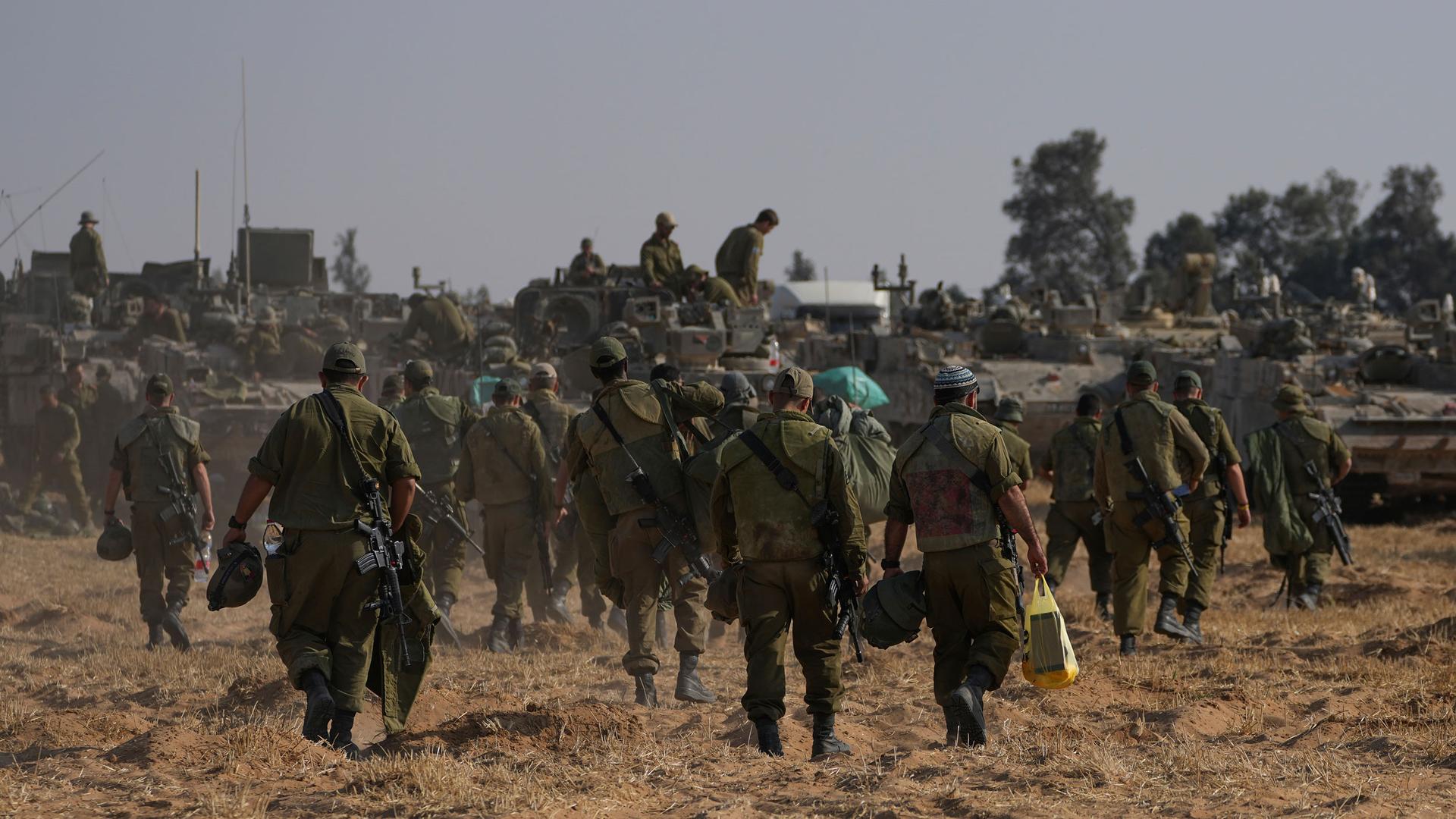US Secretary of State Antony Blinken said this week that Israel is offering an “extraordinarily generous” deal and that, “the only thing standing between the people of Gaza and ceasefire is Hamas.”
But Israel’s Prime Minister Benjamin Netanyahu said on Tuesday that the Israeli military will conduct a ground invasion into Rafah, in the southern Gaza strip — whether or not there’s a ceasefire deal with Hamas.
Blinken plans to be in Israel this week, where he’s expected to push Netanyahu’s government to work toward ending the war, despite political forces trying to pull Israel’s prime minister in the opposite direction.

Itamar Ben Gvir, Israel’s far-right minister of national security, said he met with Netanyahu on Tuesday and told him that ending the war in Gaza is not acceptable, because it would mean that Israel loses.
“We are not ending the war,” Ben-Gvir declared.

Another far-right minister in Netanyahu’s coalition, Bezalel Smotrich, appeared to threaten to quit the government if the prime minister makes a deal to free the hostages. Smotrich said a ceasefire now would be like “waiving the white flag and granting victory to Hamas.”
But a negotiated deal is exactly what might be in the works.
“It seems we are the closest we were since this war began, with the exception of the previous prisoner exchange,” said Ehud Eiran, a political scientist at the University of Haifa.
Indirect negotiations between Israel and Hamas, involving various other powers, are happening behind closed doors, Eiran said, but there have been signs of progress.
“Sources of optimism are reports that elements in the Israeli government are willing to go ahead, reports that Netanyahu is willing to give things he was unwilling to do before,” Eiran said. There have been leaks from the negotiators too, he added.
“I think also in the Israeli public, there’s a bit of early signs of being tired of the conflict.”
Israelis appear to have softened a couple of their demands, according to Khaled el-Gindy at the Middle East Institute in Washington.
“One is allowing people who have been evacuated to southern Gaza to return to their homes, or whatever may be left of their homes and neighborhoods, in north Gaza,” Gindy said.
“Up until now, Israel has not been keen to allow any significant number to return,” he added.
The second demand is some new language around these negotiations about a “sustainable calm,” Gindy said.
That’s a nod to one of Hamas’ principal demands — a permanent ceasefire. “It’s what the protest movement is demanding — what most people around the world are demanding — a permanent ceasefire,” he said.

On Monday, the British foreign secretary, David Cameron, speaking in Riyadh, Saudi Arabia, said the deal being discussed now is for a “sustained” 40-day ceasefire, and that “thousands” of Palestinian prisoners could be set free in exchange for remaining Israeli hostages in Gaza.
Gindy said it remains to be seen if Hamas will agree, because Israel has arrested and imprisoned thousands of Palestinian security suspects in recent months — mostly in the West Bank.
The Israelis could release those detainees in a Gaza deal, but they often rearrest them shortly thereafter, or detain them again, Gindy said.
“So, it’s unclear how useful that is. But it’s important symbolically for Palestinians because the prisoner issue is one that has touched almost every Palestinian family.”
There’s been speculation about the possibility of persuading Hamas leaders in Gaza to leave the territory in exchange for an end to the Israeli military’s monthslong campaign.
But Tarek Masoud of Harvard University’s Kennedy School of Government said that’s unlikely to happen.
“I just don’t see Hamas doing that. Hamas has never evinced a high degree of sensitivity to civilian casualties. And so, while I do think Hamas would want to see this war come to an end, they would probably not accept any condition that had them leaving the Gaza Strip,” Masoud said.
What Hamas probably wants at this point is to be able to declare some kind of victory, he added.
“I think they want to be able to say that they withstood Netanyahu’s assault on the territory, that they struck a blow against Israeli occupation — what they see as Israeli abuses of the Palestinian rights,” Masoud said.

The Biden administration has talked about an immediate ceasefire in Gaza and a hostage exchange as a step toward something much bigger — the revival of the long-stalled peace process aimed at getting to a two-state solution.
Since Oct. 7 last year, Blinken has met with officials from Egypt, Jordan, Saudi Arabia and Qatar. But those governments have seemed hesitant to offer robust support for the administration’s postwar plans.
In the meantime, Netanyahu is also under pressure at home to find a way to get those hostages back home. Massive protests calling for a hostage deal across Israel continue.

On Monday, an editorial in the Israeli newspaper Ha’aretz declared, “It must be hoped that the current momentum will result in an agreement that will finally bring home the hostages, who have been held captive by Hamas in Gaza for over 200 days, and not end in bitter disappointment as previous negotiations have. Above all for the sake of the hostages and their families, but also for all Israelis, who want their return more than anything.”
Other members of the government coalition are also warning Netanyahu against walking away from a ceasefire deal that could finally save the lives of those still being held in Gaza.
On Sunday, the war cabinet minister, Benny Gantz, said, “If a responsible outline is reached for the return of the hostages with the backing of the entire security establishment — which does not involve ending the war — and the ministers who led the government on Oct. 7 prevent it, the government will have no right to continue to exist and lead the campaign.”
